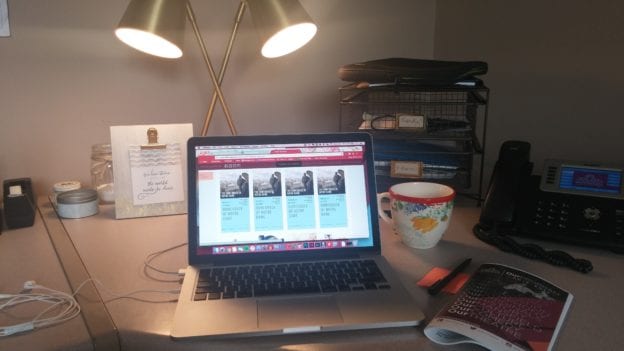
by Colleen Cook
Arts Administration (also called "arts management") is a diverse field of employment in the arts, with a broad range of jobs and workplaces. An arts administrator is a business-minded leader of an arts and cultural organization/festival/institution. Degree programs in the field of Arts Administration have been available in higher education since the 1970s, and focus on elements of business administration, non-profit administration, advocacy, fund development, marketing, arts law, along with other elements of the arts and cultural industry.
At the Renaissance, we employee arts administrators in the departments of fund development, marketing, executive leadership, bookings, box office, finance, and direction. Many of our staff have experience in both the arts and business, and some of our staff members hold degrees specific to arts management. Successful arts administrators possess a dual understanding of what it takes to make great art, alongside what is required to run a viable business.
I've had the opportunity to work in roles in both marketing and development at the Renaissance, as well as some positions and internships at institutions of higher education and non-profit arts advocacy. Before entering the field of arts administration, I studied music education and worked as a voice teacher and vocal music teacher in the public schools. In my experience, it has been especially helpful to be familiar with the composers, artists, shows, and elements that come together to perform a show so that I can communicate that story with our patrons, donors, and community at large.
An arts administrator needs to be organized, a self-starter, hard-working, and passionate about the arts to be successful, in my opinion. While the field is broad, many arts administrators are responsible for multiple job roles, particularly at smaller organizations. There's always more that you can do to support a performance or exhibit, and being on top of your workload is key. In my specific roles in marketing and fund development, great communication skills are essential as well.
If you boil down my job as Director of Marketing to just one phrase, it would be "communicate with the audience about the organization and its programs." In my previous role as Director of Development, that phrase would be, "communicate with donors and potential donors about the organization's programs and opportunities to give." We communicate through dozens of channels, in an effort to reach each individual in a meaningful way that is comfortable for them.
All of our arts administrators have to be great communicators, but often for different reasons. Our executive leaders (for us, that's our President and CEO, Artistic Director and our Executive Director) need to be effective communicators with the staff, board, volunteers, and artists to ensure that the organization runs well, that the performances are successful, and that everyone stays on the same page.
Our Box Office and Front of House team need to be great customer service representatives, helping to communicate with the audience directly at the point of purchase and at our events, or when a problem arises. Our Bookings Manager must be able to negotiate and communicate with agents and with our artistic and technical staff to land on contracts that are reasonable for our team, profitable for our organization, and bookings that are attractive to our audience. Our Finance team needs to be detail-oriented and communicative with the staff and board about the financial position of the organization so that we are sustainable in the achievement of our vision and mission.
Interestingly, great communication skills make a great arts administrator, as well as a great artist. In my opinion, it's one of the things that makes working in this field so much fun, and the people who work in it so fantastic.
Hello! I’m a high school senior going to college next year. I’m interested in a career in arts administration and would like to know how you established your career. If you don’t mind answering, I’d like to ask what your college major was, and how you used that to navigate the arts management world to get where you are now.
Thanks
Hi Sloan, If you are still interested, would you please email [email protected]? Thank you!